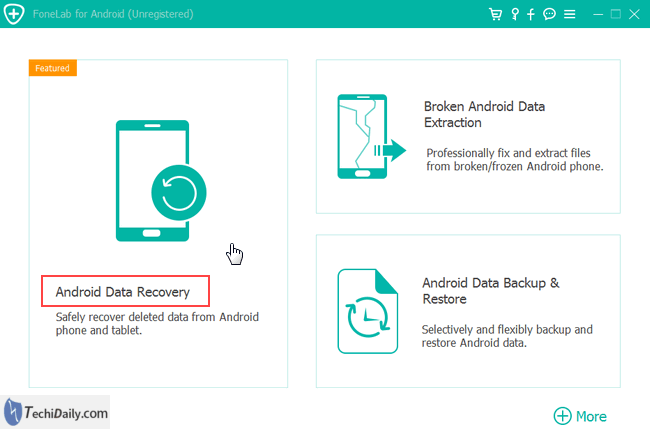Possible solutions to restore deleted videos from Redmi A2+


This kind of situation will bring video loss to users if no updated backup available. In such circumstance, you are required to opt for video recovery solutions to recover deleted video from Xiaomi Redmi A2+. So it's important to perform Android Data Recovery as soon as possible once video loss happens.
The Android Data Recovery is used in such cases:
- Accidentally delete videos, contacts, messages, reminders, notes, and other format data.
- Factory Reset your Xiaomi Redmi A2+.
- Formatting Xiaomi Redmi A2+ results in deletion of data.
- The device be broken or water damaged.
- Losing the device or it has been stolen.
- Losing data, after an Android upgrade, jailbreaking or more.
- Part 1: Possible solutions to restore deleted videos from Redmi A2+ (on macOS)
- Part 2: Possible solutions to restore deleted videos from Redmi A2+ (on Windows)
Step 1: Download and launch the Aiseesoft FoneLab Android Data Recovery for Mac
Download and install the Aiseesoft FoneLab Android Data Recovery for Mac in your Mac computer, when you open it, a dialog box will pop up to remind you whether to register, purchase or free try.
Note: You can free try this software in 30 days

Step 2: Connection
Run this powerful Android data recovering software on your Mac computer, and then connect your Xiaomi Redmi A2+ device to computer via the USB cable. The program will detect your device automatically.
Step 3: Enable USB debugging.
Android Data Recovery will prompt you to enable USB debugging on your Xiaomi Redmi A2+ if you don’t open the debugging mode. The program will detect the version of your Xiaomi Redmi A2+ device automatically and give you the instruction of opening the USB debugging mode on your Redmi A2+. After finishing the operations on your device, click “OK” button.
Step 4: Select the videos you want to recover.
After connection, all file types on your Xiaomi Redmi A2+ will be showed in the interface. Choose the file types you want to recover, such as videos, contacts, messages, messages attachments, call logs, photos, gallery, picture library, audios and other documents. Check the file types you want to recover and click “Next”. The program will scan your device automatically.
Step 5: Recover Xiaomi Redmi A2+ videos
When the scanning is finished, all types of files will be listed in categories on the left control. You are allowed to check the detailed information of each data. Preview and select the data you want to recover, and then click “Recover” button to complete recovering process.
Step 1: Download and launch the Android Data Recovery
Download and install the Android data recovery tool in your Windows computer, you can free try this software in 30 days.
Step 2: Connection
Connect your Xiaomi Redmi A2+ device to your Windows computer via the USB cable. Wait for seconds before the device is detected. Install the device driver on your computer if it hasn’t been installed.
Step 3: Enable USB debugging.
Allow USB debugging when your Android prompts you of USB debugging permission. After finishing the operations on your Xiaomi Redmi A2+, click “OK” button.
Step 4: Preview and recover the lost videos.
Soon, all Android available files will be classified into category on the left. You can toggle the button of “Only display the deleted item(s)” to “On”, so that you can quickly find the wanted Android file. Click “Recover” button and choose a destination folder to recover files. Within seconds, you can navigate to the file folder and check your deleted video files from Xiaomi Redmi A2+.
If your Xiaomi Redmi A2+ is damaged seriously, you may lost your videos without the possibility to recover them back. That’s why we kindly suggest you back up your Xiaomi Redmi A2+ regularly.
- Title: Possible solutions to restore deleted videos from Redmi A2+
- Author: Vivienne
- Created at : 2024-07-17 04:27:09
- Updated at : 2024-07-26 17:42:33
- Link: https://review-topics.techidaily.com/possible-solutions-to-restore-deleted-videos-from-redmi-a2plus-by-fonelab-android-recover-video/
- License: This work is licensed under CC BY-NC-SA 4.0.
